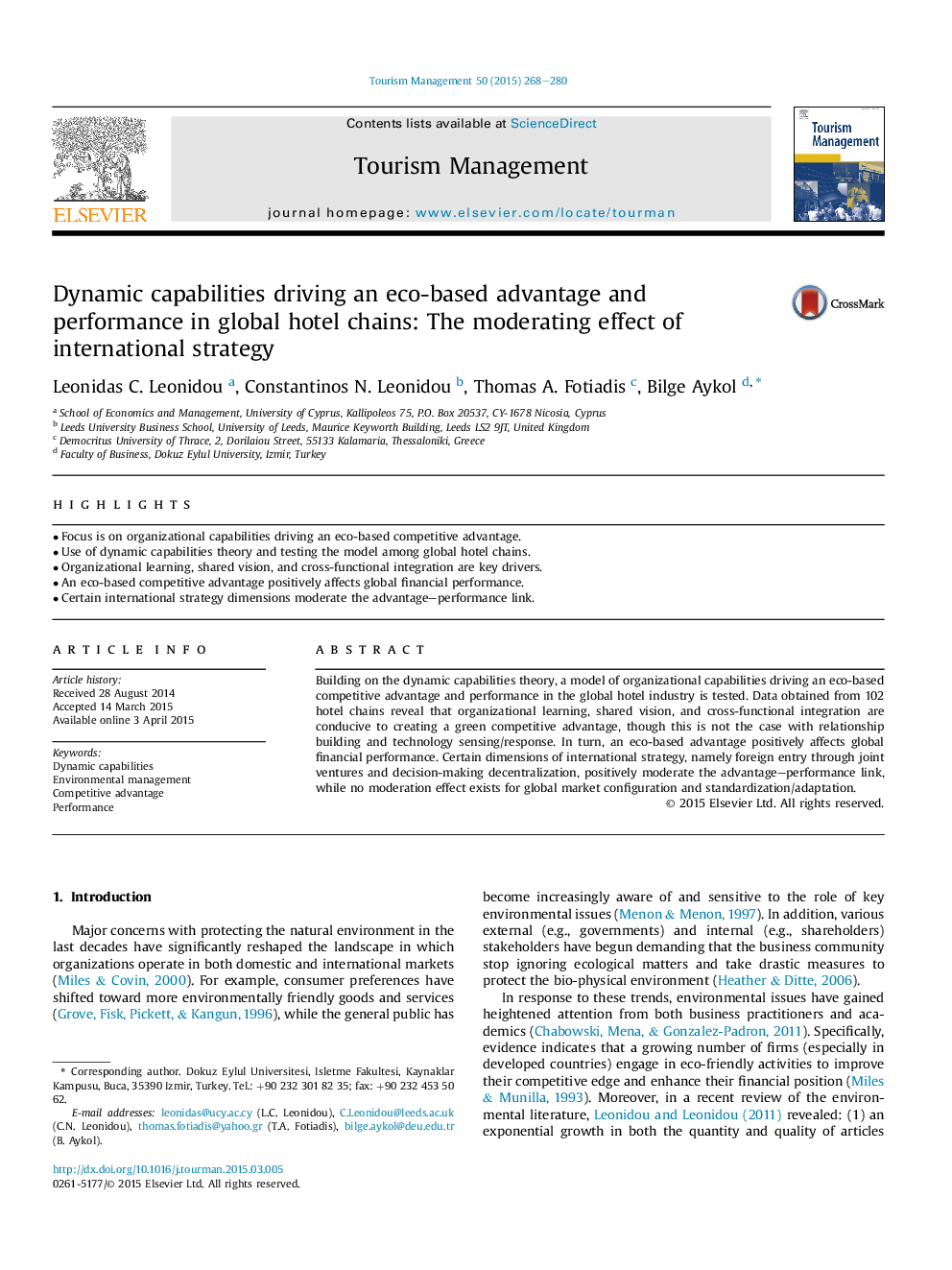| Article ID | Journal | Published Year | Pages | File Type |
|---|---|---|---|---|
| 1011919 | Tourism Management | 2015 | 13 Pages |
•Focus is on organizational capabilities driving an eco-based competitive advantage.•Use of dynamic capabilities theory and testing the model among global hotel chains.•Organizational learning, shared vision, and cross-functional integration are key drivers.•An eco-based competitive advantage positively affects global financial performance.•Certain international strategy dimensions moderate the advantage–performance link.
Building on the dynamic capabilities theory, a model of organizational capabilities driving an eco-based competitive advantage and performance in the global hotel industry is tested. Data obtained from 102 hotel chains reveal that organizational learning, shared vision, and cross-functional integration are conducive to creating a green competitive advantage, though this is not the case with relationship building and technology sensing/response. In turn, an eco-based advantage positively affects global financial performance. Certain dimensions of international strategy, namely foreign entry through joint ventures and decision-making decentralization, positively moderate the advantage–performance link, while no moderation effect exists for global market configuration and standardization/adaptation.
